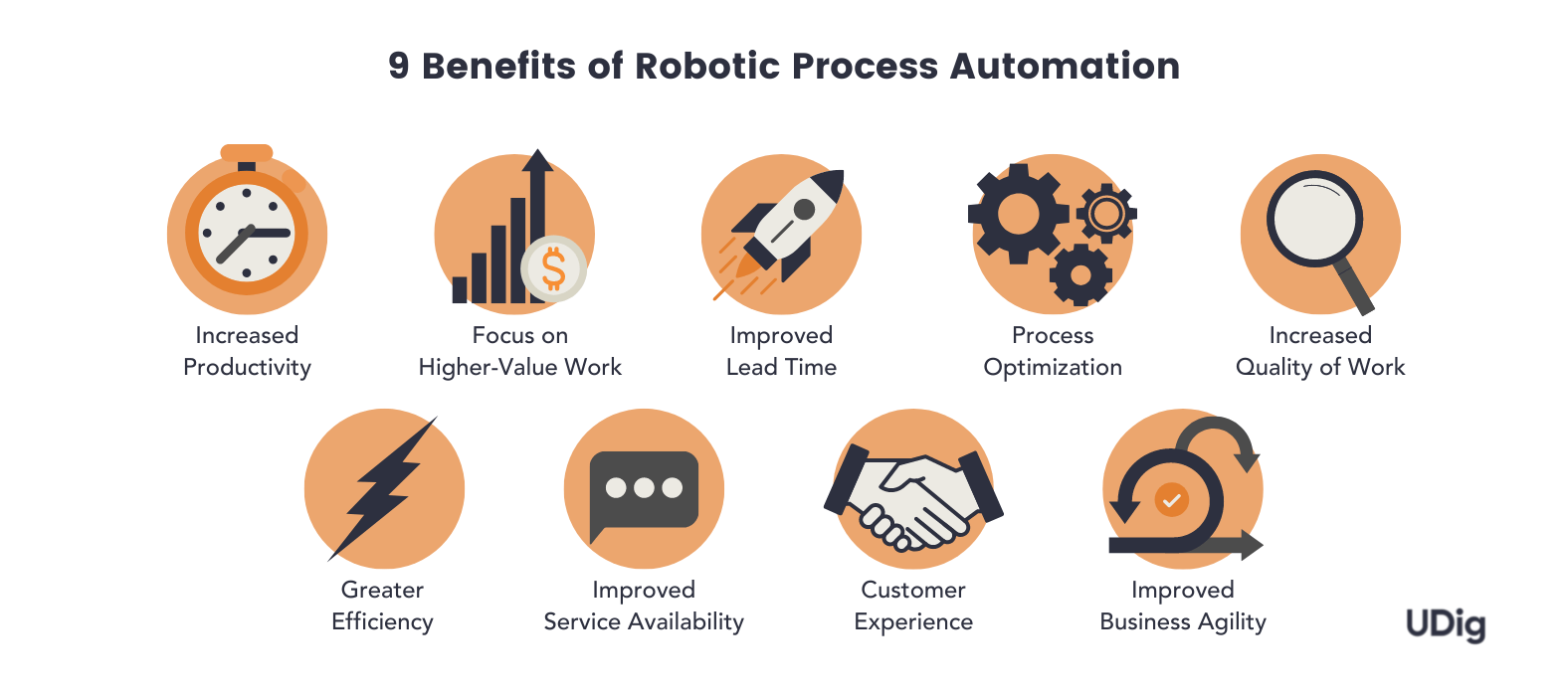RPA Digital Transformation in China

In recent years, China has emerged as a global leader in the adoption and deployment of Robotic Process Automation (RPA) technology. This has been driven by a number of factors, including the government’s support for digital transformation, the large and growing Chinese market for RPA solutions, and the availability of a skilled workforce.

RPA is a software technology that enables businesses to automate repetitive and rule-based tasks, such as data entry, processing, and customer service. It is a valuable tool for businesses looking to improve efficiency and productivity, reduce costs, and improve compliance.

In China, RPA is being used across a wide range of industries, including banking, insurance, manufacturing, retail, and healthcare. Some of the most common use cases for RPA in China include:
- Automating data entry and processing
- Streamlining customer service processes
- Automating invoice processing and payment
- Improving compliance with regulations
- Enhancing data security
The adoption of RPA in China is being driven by a number of key factors. First, the Chinese government is strongly supportive of digital transformation. In 2024, the government released a plan to accelerate the development of the digital economy, which included a number of measures to encourage the adoption of RPA and other digital technologies.
Second, China has a large and growing market for RPA solutions. According to a report by IDC, the Chinese RPA market is expected to grow from $230 million in 2024 to $1.2 billion by 2024. This growth is being driven by the increasing demand for RPA solutions from businesses of all sizes and industries.
Third, China has a skilled workforce that is capable of developing, deploying, and managing RPA solutions. The country has a number of universities that offer degrees in computer science and software engineering, and there is a growing pool of experienced RPA professionals.
The adoption of RPA in China is having a number of positive impacts on businesses. RPA is helping businesses to improve efficiency and productivity, reduce costs, and improve compliance. In addition, RPA is freeing up employees to focus on more strategic and value-added tasks.
As the Chinese market for RPA continues to grow, it is expected that the country will become a global leader in the development and deployment of RPA solutions. Chinese businesses are well-positioned to take advantage of the benefits of RPA, and the government is committed to supporting the development of the digital economy.## RPA Digital Transformation in China
Executive Summary
Robotic Process Automation (RPA) is rapidly transforming the business landscape in China, automating routine and repetitive tasks, increasing efficiency, and unlocking new opportunities. As China embraces digitalization, RPA is expected to play a pivotal role in driving economic growth and enhancing competitiveness. This article delves into the current state, subtopics, and future prospects of RPA in China, providing insights that will help businesses harness the transformative power of this technology.
Introduction
China has emerged as a global leader in the adoption of RPA due to its vast manufacturing base, large population of tech-savvy workers, and supportive government policies. RPA solutions have the potential to automate a wide range of tasks in various industries, including banking, manufacturing, insurance, and healthcare, promising significant efficiency gains and cost savings.
Frequently Asked Questions (FAQs)
- What is the current landscape of RPA in China?
- China is currently the second-largest market for RPA solutions globally, with a rapidly growing adoption rate fueled by government initiatives and increasing awareness.
- What are the benefits of implementing RPA in China?
- RPA can improve operational efficiency by automating repetitive tasks, reducing reliance on manual labor and increasing productivity.
- It enhances accuracy and consistency by eliminating human error.
- RPA can free up employees to focus on higher-value tasks, driving innovation and strategic growth.
- What industries are best suited for RPA implementation in China?
- Banking and financial services, manufacturing, insurance, healthcare, retail, and e-commerce are among the sectors that can greatly benefit from RPA.
Key Subtopics
1. RPA for Process Automation
- Defining Process Automation: Automating routine, repetitive, and rule-based processes that are typically performed manually.
- Benefits: Eliminates manual errors, accelerates processing times, and improves compliance.
- Applications: Accounts payable, order processing, claims processing, data entry, and inventory management.
2. RPA in Manufacturing
- Optimizing Production Processes: Automating tasks such as inventory management, quality control, and production scheduling.
- Benefits: Increases productivity, reduces waste, and enhances product quality.
- Applications: Warehouse management, assembly line automation, quality assurance testing, and predictive maintenance.
3. RPA for Customer Service
- Enhancing Customer Experience: Automating tasks such as chatbot interactions, complaint resolution, and order tracking.
- Benefits: Improves response times, reduces customer frustration, and enhances satisfaction.
- Applications: Digital assistants, complaint management systems, and order status updates.
4. RPA in Finance and Accounting
- Streamlining Financial Operations: Automating tasks such as accounts payable, invoice processing, and financial reporting.
- Benefits: Reduces errors, accelerates cash flow, and improves financial visibility.
- Applications: Accounts payable processing, invoice processing, reconciliation, and budgeting.
5. RPA in Healthcare
- Optimizing Patient Care: Automating tasks such as medical records management, appointment scheduling, and insurance claim processing.
- Benefits: Improves patient safety, reduces costs, and enhances operational efficiency.
- Applications: Patient registration, data management, laboratory testing, and pharmacy management.
Conclusion
RPA is poised to revolutionize the business landscape in China, unlocking new possibilities for growth and efficiency. By embracing automation, businesses can achieve greater agility, reduce costs, and enhance customer experience. As China continues to drive digital transformation, RPA will undoubtedly play a pivotal role in shaping its future competitiveness and prosperity.
Keyword Tags
- RPA in China
- Robotic Process Automation
- Digital Transformation
- Process Automation
- Automation in Manufacturing
